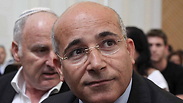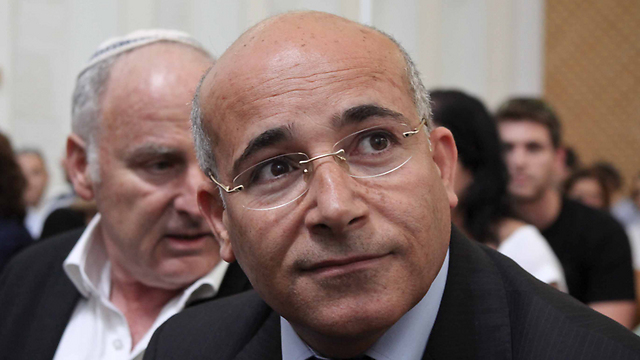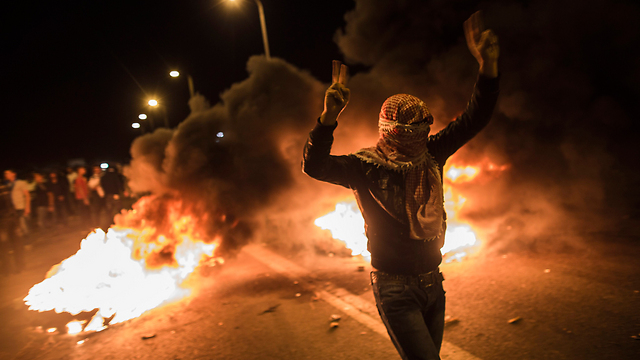
Youth claims he was offered money by Bedouin politician to protest
Bedouin youth says former MK Talab El-Sana conditioned financial assistance for his studies on his participation in protest against Prawer Bill.
Former Knesset Member Talab El-Sana allegedly offered to pay a Bedouin youth NIS 15,000 to take part in a protest against the Prawer Bill a year ago, as well as gather more demonstrators, Ynet learned Thursday, after obtaining documents related to investigations on violent activity at the protests.
The bill, which aimed to evict certain Bedouin communal villages unrecognized by Israeli law, provoked at the time a storm not only amid Arab MKs who disapproved of the bill and voted against it, but mainly among those it was aimed against -the residents of unrecognized Bedouin villages in southern Israel, who held many protests against the plan.
According to the youth, El-Sana even said he would provide money to pay for gasoline used to make Molotov cocktails that were to be thrown during the protest. The youth said he had informed El-Sana during a protest that he was in possession of glass bottles, but did not have enough money to fill them with gasoline, for which the former MK said he would pay later on, but never did.
The youth said: "After the protest, a week or so later, I went to his office in Be'er Sheva and asked him about the money. He told me, 'I'm not available right now, I have a meeting'".
The 18-year-old, who is being questioned by the Shin Bet regarding his activity in the protests, said during an investigation: "About a year ago, I do not remember exactly when, I went to Talab El-Sana to ask for financial assistance for my studies – I wanted to learn singing and didn't have any money."
"El-Sana told me, 'participate in the protests in Hura (a Bedouin village near Be'er Sheva) with the rest of the kids there and do what they are doing', and promised to give me money for help. I agreed".
The youth said that during one of the protests last year, he went with a friend to fill empty bottles with gasoline to make Molotov cocktails. "I called El-Sana and told him that I have glass bottles and that I want to fill them with gasoline for the protest, but that I don't have any money. El-Sana said, 'fill it up, I'll give you the money later,' but did not keep his word. The youth noted that he did not do as he was instructed and threw the empty bottles away.
"I was afraid of the police and didn't want to risk myself," he said.
Upon being asked how much money El-Sana had promised him, he said the sum amounted to "about NIS 15,000 – assistance for studies." When questioned about his reasons for participating in the protest, he replied that he did it "for fun, and because El-Sana promised me money."
El-Sana said in response to the report: "This is absolutely ridiculous. It's crazy." He said that no one from the police had approached him on the subject.
"It's not worthy of my comments. We fought a battle against the Prawer Bill and were able to recruit thousands on an ideological basis against the plan to demolish houses and uproot villages. This claim is far-fetched and unfounded. No one is taking this nonsense seriously," the former MK said.
The Bedouins, traditional Arab tribes living in Israel's southern Negev region, hold Israeli citizenship and between 1968 and 1989, Israel established townships in the Negev for the Bedouin communities - about half of them relocated to the new townships.
However, others chose to remain in unrecognized villages without basic services such as electricity and running water. While the Israeli government has gradually recognized some of the remaining Bedouin villages and aided in improving infrastructure and basic services, the majority are fated with destruction and forced relocation with the passing of the Prawer Bill.
The Prawer Bill includes compensation for many Bedouins with a combination of land and cash and brings them into "the 21st century" by significantly improving their standard of living, according to a government-sponsored report on the draft.
The Israeli position is that developing the region provides an opportunity to address the needs of a long neglected segment of the population.
Over two-thirds of Negev Bedouin lived below the poverty line in 2007, over four times the rate of Jewish households, according to the National Insurance Institute.












